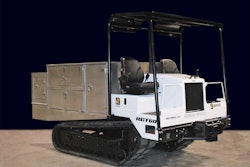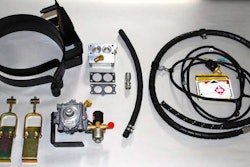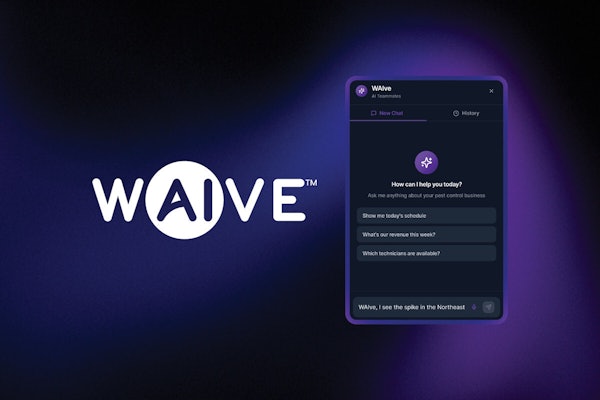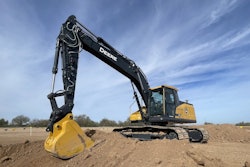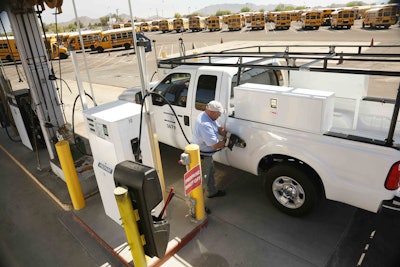
![By using propane with your trucks and equipment, you can extend the savings. [All photos provided by the Propane Education & Research Council (PERC).]](https://img.totallandscapecare.com/files/base/randallreilly/all/image/2014/04/tlc.Ads_20120925_GJP_PERC_511.png?auto=format%2Ccompress&fit=max&q=70&w=400) By using propane with your trucks and equipment, you can extend the savings. [All photos provided by the Propane Education & Research Council (PERC).]
By using propane with your trucks and equipment, you can extend the savings. [All photos provided by the Propane Education & Research Council (PERC).]But the engines suffer on the fuel-economy front when subjected to medium- to high loads, such as towing trailer, as is the case with the 3.5L F-150 EcoBoost.
Bring liquid-injected propane autogas into the picture, and the very same engine behaves quite differently, according t0 researchers who are close to having conversion kits certified for such applications.
According to Michael G. Ross, Program Manager for the Southwest Research Institute, dynamometer testing (with PERC funding) on a Ford 3.5L EcoBoost engine showed the potential for significant improvements in engine efficiency at medium to high loads when the engine is boosted.
“Under boosted conditions, the engine is very knock-limited on gasoline, especially regular gasoline,” Ross explains. “To control knock when running on gasoline, the spark timing is retarded up to 20 degrees, which causes the exhaust temperature to increase significantly.”
Ross says under those high-load conditions, the engine dumps up to 30 percent in excess fuel to reduce the exhaust temperature in order to protect the turbocharger and catalytic converters. All that fuel is wasted. This is why the fuel economy for the EcoBoost suffers so much when towing.
“With propane, no spark retard is required, even at full load, which by itself improved efficiency,” Ross says. “The advanced spark timing reduces exhaust temperatures enough that no fuel enrichment is required up to at least 3500 RPM.”
According to the latest research done on the EcoBoost V-6, fuel consumption on propane would be much less sensitive to how the vehicle is driven than it is on gasoline.
For those who drive very gently, like highway cruising, the difference in fuel economy between gasoline and propane would still be dictated by the lower energy content per gallon for propane.
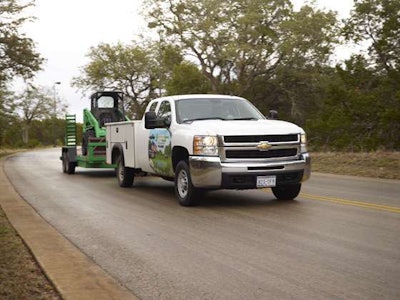 Propane autogas truck
Propane autogas truckHowever, for those of us who accelerate normally, maintain speed going up hills or tow trailers, the difference in mpg between gasoline and propane would be negligible because of the efficiency gains propane provides in a direct-injected, turbocharged application.
Researchers like Ross say there’s great potential using propane in these new engines. But more work needs to be done to bring turbocharged, direct-injected propane vehicles to market, including durability testing to make sure the stock gasoline direct-injection fuel pump and fuel injectors will last when running on propane.
Related Links:
http://www.energyalmanac.ca.gov/transportation/gge.html
https://afdc.energy.gov/fuels/prices.html
